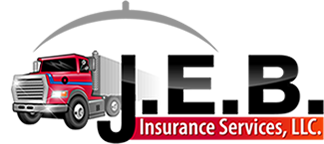Forklifts are large, powerful, and heavy machines. Unlike pallet jacks, they are capable of causing serious damage to your trailer. They may even cause serious injury or death. Although forklift operation is the customer’s responsibility, your trailer must be capable of handling them, and you should watch the operation closely; ready to intervene when you see unsafe practices. If you’re a commercial or owner operator truck driver with limited exposure to forklift loading operations, these five suggestions will help:
Know Your Trailer’s Floor Capacity
Forklifts can weigh up to 9000 pounds. Can your trailer floor handle the combined weight of the forklift, its load, and the load currently inside your trailer? Your trailer floor capacity (which includes the floor, side rail, and cross-members) should exceed this combined load. Forklifts have broken through trailer floors, as shown in this video.
Inspect and Maintain Your Trailer Floor
Your trailer floor can weaken over time from repeated forklift loading, moisture, and exposure to corrosives such as road salt. Inspect the floor where forklift wheels repeatedly ride. Is the floor near the door frequently exposed to rain? This will eventually rot the wood. Don’t forget to periodically inspect the underside of your trailer for corrosion of the floor’s structural members.
Will the Customer’s Forklift Fit into Your Trailer?
Although this seems like a silly question, forklifts have torn holes in trailer roofs because their mast or overhead guard was higher than the roof. It’s a natural assumption on both the trucker’s and customer’s part that, yes, forklifts fit into trailers. But it’s the occasional exception that can ruin your day.
Secure Your Trailer
Unsecured trailers can roll away from the loading dock as the forklift enters the trailer. This may cause the forklift to drop to the ground below. Make sure your landing gear is properly supported. Place chocks against the trailer wheels to hold the trailer against the dock.
Keep an Eye on the Forklift Operator
Watch for and anticipate these dangerous mistakes:
- Doing a U-turn on a loading ramp. If the ramp is inclined, the forklift can tip over when it’s sideways to the slope.
- Riding up or down a ramp with the load facing downhill. This too, may cause a tip-over.
- The load is raised too high. The forklift operator should keep the load as low as safely possible.
- The load is not centered on the forks. This can cause a tip-over.
- The load is hanging off the fork tips. Again, this may cause a tip-over.
- The operator seems rushed or reckless. Not operating a forklift in a deliberate and careful way, invites accidents.
- The operator is distracted by a cell phone. The operator should know better than to multitask while using a forklift.
Sometimes accidents happen in spite of your diligence. That’s where commercial or owner operator truck insurance in Texas comes in. Make sure you have enough coverage, and don’t hesitate to contact us.


